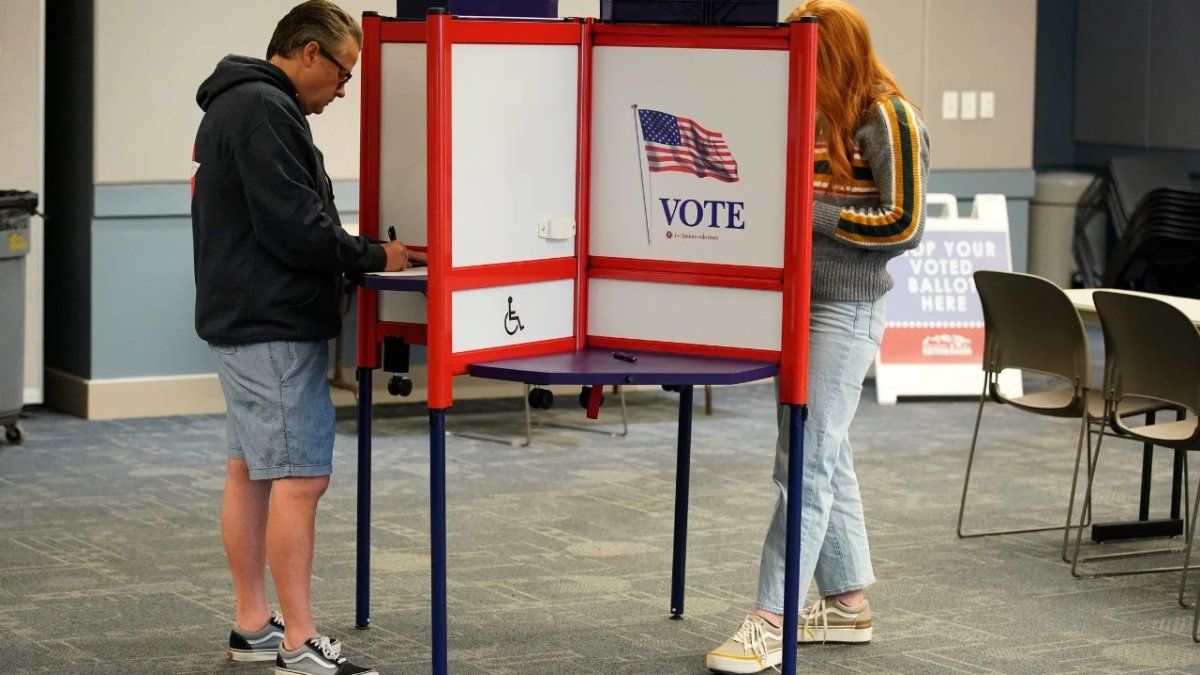In this context, a possible a republican victory would impact differently than a possible democratic victory in Latin Americaalthough the latter would be a continuity of what is already happening.
Currently, the United States is the Mexico’s first trading partnerso a Trump victory could directly harm this relationship, given a possible closure of the economy. This fact would not be positive for either country.
The Republican candidate defender of protectionismcould conclude these exchanges, unlike Harris, where it is estimated that everything would continue as is.
Likewise, Mexico is the only country with which it could continue transacting, since with the exception of this one, Latin America has long It stopped being a priority of the largest country on the continent, US eyes are on Russia, Ukraine and the conflict in the Middle East.
Nevertheless, the region does observe the United Statessince it is its second largest trading partner and the main source of foreign direct investment. It also occupies the place of unavoidable protagonist of continental security and defense, and undisputed magnet of Latin American emigration.
Without going any further, Jorge Arguello, Argentine ambassador to the United States for four different terms, stated: “I have never seen Argentina and the region occupy a priority placeexcept for the presence of extrahemispheric actors.”
Kamala Harris Donald Trump.jpg
Donald Trump and Kamala Harris face off in what would be the most even elections in American history.
Archive.
The influence of immigration
Another direct point with Latin America is the immigrationand the policies around it may vary depending on the new president. Trump carried his flag proposals, the strong limitations on immigration in the United States, while Harris talks about distinguish types of immigrants.
The thing is that, for the Democrat, a criminal organization or drug infiltration is not the same as a family that migrates looking for new opportunities for growth. These distinctions can be documented, as with the Aragua train of Venezuela.
However, until now, the Democratic Party had a benevolent perspective on immigration until now, while the Republican Party had a more aggressive position.
The positions regarding immigration affect the entire Latin American region, since they are an indirect source of income, and they can annular commercial and business routesas well as new opportunities.
It should be noted that, today, More than 60% of Americans believe that immigrants entered indiscriminately to his country in recent years. The impact of Trump’s anti-immigrant rhetoric is very strong, so much so that his opponent was forced to include promises of controls and deportations in his program.
If the mass deportation plan proposed by Trump, the regional economy could change completely, since there are many countries that do not have the capacity to absorb the people who return, and others would be left without the income of the remittances to which they became accustomed.
How it impacts Argentina
Analysts of Barclays They published a report on the implications of these elections in various areas of the economy.
Donald Trump’s ideological affinity with Javier Milei causes speculation in various economic and political circles in Argentina about potential favors that could come from the north.
However, it indicates that “the policies proposed by the Republican candidate will also tend to maintain high rates in the US and a more appreciated dollar globally, harming emerging countries,” including Argentina. For Cognetta, this would be particularly true if Trump’s eventual arrival in the White House is accompanied by complete control of both chambers of Congress.
“Therefore, for Argentina it will not only be important to observe the electoral result for the Executive, but also for the Legislative, especially the House of Representatives,” he warns.
From the Center for Political and Economic Studies (CEPEC) led by economist Leo Anzalone explain that Donald Trump’s policies could benefit the energy and defense industries. “This comes from evaluating his most recent statements, but fundamentally from his history and his previous political proposals.“, it is analyzed.
The former president’s economic policies were characterized by an approach “on protectionism and boosting economic growth through tax cuts and deregulation“. One of the most notable policies during his presidency was the use of trade tariffs and protectionist measures, with the aim of protecting national industries from foreign competition. This strategy sought to strengthen domestic production and reduce dependence on imports, although It has also led to trade tensions and increased costs for companies that rely on global supply chains.
In terms of fiscal policy, “Trump implemented significant tax cuts for both individuals and corporations, combined with an increase in public spending,” CEPEC maintains, “especially in infrastructure and defense“These measures had been designed to stimulate economic growth in the short term, but also raised concerns regarding the increase in the fiscal deficit and public debt, given the considerable government spending incurred.
On the other hand, if the Democratic appointment is confirmed, the economic policies proposed by Kamala Harris would be more focused on the redistribution of wealth, the strengthening of social programs and investment in key sectors such as education, health and renewable energy.
Source: Ambito
I am Pierce Boyd, a driven and ambitious professional working in the news industry. I have been writing for 24 Hours Worlds for over five years, specializing in sports section coverage. During my tenure at the publication, I have built an impressive portfolio of articles that has earned me a reputation as an experienced journalist and content creator.




